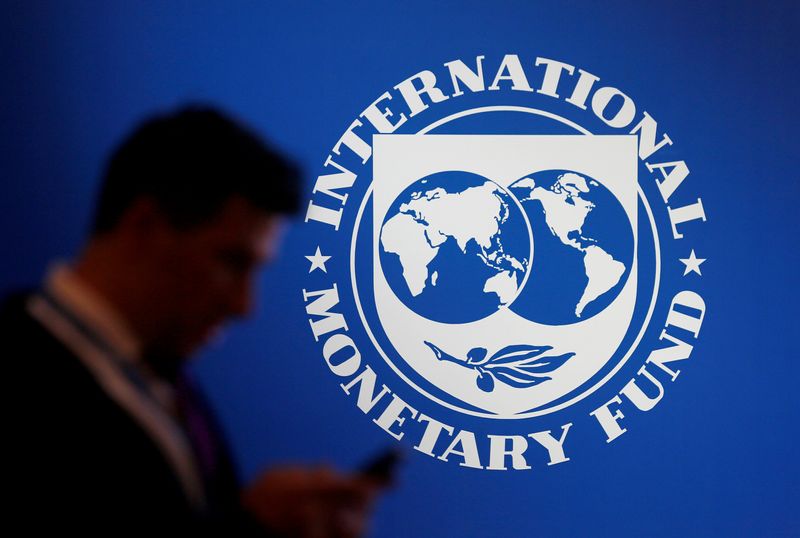By David Lawder
WASHINGTON (Reuters) - The COVID-19 pandemic wreaked havoc on global supply chains but new International Monetary Fund research shows that more diversification of source countries and inputs can significantly reduce the economic drag from supply disruptions.
In an analytical chapter of its forthcoming World Economic Outlook, IMF researchers said that countries experienced larger declines of goods imports, and GDP, in the first half of 2020 when trading partners imposed strict COVID-19 lockdowns.
Such declines revealed the vulnerabilities of value chains optimized for maximum efficiency and have prompted governments to call for more production to be brought home.
"Dismantling global value chains is not the answer. More diversification, not less, improves resilience," the researchers wrote in a blog post accompanying the chapter.
Simulating a lockdown akin to those in China in early 2020, the researchers said by that reducing labor supply by 25% in a single large supplier of intermediate components, the average economy's output fell by around 0.8%.
But with higher diversification among source countries, the decline would be reduced by about half, to about 0.4%.
Even in scenarios where there are shocks to multiple countries, high source diversification reduces the level of GDP decline by about 5%.
But in a largely global lockdown such as the first four months of the COVID-19 pandemic, high diversification provides almost no diversification among downside risks.
The IMF researchers said that the benefits of increased geographical diversification raise questions about national policies aimed at "reshoring" production to domestic sources, such as the Made In-China 2025 program, the Make in India initiative and the U.S. Innovation and Competition Act of 2021.
"The evidence from a modeling approach suggests that resilience to cross-border supply shocks can be increased with greater input source diversification (using more foreign inputs) and greater input substitutability (across suppliers), although the benefits are smaller if shocks are more widespread and correlated across countries," the IMF said.

Substitutions can also be achieved through greater production flexibility, the IMF said, such as when electric vehicle maker Tesla (NASDAQ:TSLA) responded to a semiconductor shortage by rewriting software in its cars to use alternative chips. It also cited General Motors (NYSE:GM)' moves to replace 95% of the unique chips it uses with more standardized microcontrollers.
The IMF recommended governments prioritize improving vaccine access to end the pandemic as soon as possible, to improve trade logistics through better infrastructure and reduce trade barriers.